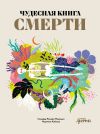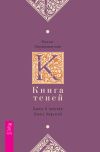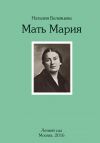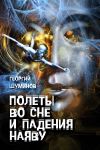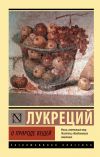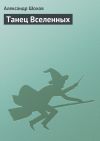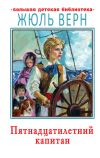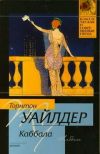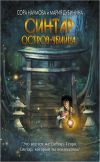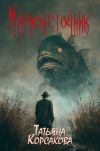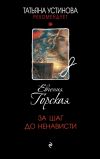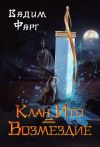Текст книги "Ренессанс. У истоков современности"
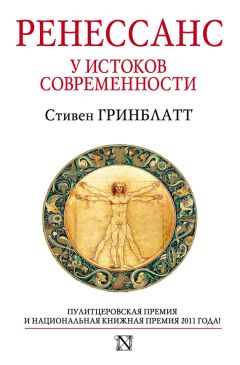
Автор книги: Стивен Гринблатт
Жанр: Зарубежная образовательная литература, Наука и Образование
Возрастные ограничения: +16
сообщить о неприемлемом содержимом
Текущая страница: 21 (всего у книги 22 страниц) [доступный отрывок для чтения: 7 страниц]
Johnson, W R. Lucretius and the Modern World. London: Duckworth, 2000.
Jones, Howard. The Epicurean Tradition. London: Routledge, 1989.
Jordan, Constance. Pulci’s Morgante: Poetry and History in Fifteenth-Century Florence. Washington, DC: Folger Shakespeare Library, 1986.
Joy, Lynn S. “Epicureanism in Renaissance Moral and Natural Philosophy”, Journal of the History of Ideas 53 (1992), pp. 573–83.
Judd, John. The Coming of Evolution: The Story of a Great Revolution in Science. Cambridge: Cambridge University Press, 1910.
Kaczynski, Bernice M. Greek in the Carolingian Age: The St. Gall Manuscripts. Cambridge, MA: Medieval Academy of America, 1988.
Kain, Philip J. Marx’ Method, Epistemology and Humanism. Dordrecht: D. Reidel, 1986.
Kamenka, Eugene. The Ethical Foundations of Marxism. London: Routledge & Kegan Paul, 1972.
Kantorowicz, Ernst H. “The Sovereignty of the Artist: A Note on Legal Maxims and Renaissance Theories of Art”, in Millard Meiss, ed., Essays in Honor ofErwin Panofsky. New York: New York University Press, 1961, pp. 267–79.
Kargon, Robert Hugh. Atomism in England from Hariot to Newton. Oxford: Clarendon Press, 1966.
Kaster, Robert A. Guardians of Language: The Grammarian and Society in Late Antiquity. Berkeley: University of California Press, 1988.
Kemp, Martin. Leonardo da Vinci, the Marvelous Works of Nature and Man. Cambridge, MA: Harvard University Press, 1981.
Leonardo. Oxford: Oxford University Press, 2004.
Kemple, Thomas. Reading Marx Writing: Melodrama, the Market, and the “Grun-drisse.” Stanford: Stanford University Press, 1995.
Kenney, E. J. Lucretius. Oxford: Clarendon Press, 1977.
Kidwell, Carol. Marullus: Soldier Poet of the Renaissance. London: Duckworth, 1989.
Kitts, Eustace J. In the Days of the Councils: A Sketch of the Life and Times ofBal-dassare Cossa (Afterward Pope John the Twenty-Third). London: Archibald Constable & Co., 1908.
Pope John the Twenty-Third and Master John Hus of Bohemia. London: Constable & Co., 1910.
Kivisto, Sari. Creating Anti-Eloquence: Epistolae Obscurorum Virorum and the Humanist Polemics on Style. Helsinki: Finnish Society of Sciences and Letters, 2002.
Kohl, Benjamin G. Renaissance Humanism, 1300–1550: A Bibliography of Materials in English. New York and London: Garland, 1985.
Kors, Alan Charles. “Theology and Atheism in Early Modern France”, in Grafton and Blair, eds., Transmission of Culture in Early Modern Europe, pp. 238–75.
Korsch, Karl. Karl Marx. New York: John Wiley & Sons, 1938.
Koyre, Alexandre. From the Closed World to the Infinite Universe. Baltimore: Johns Hopkins Press, 1957.
Krause, Ernst. Erasmus Darwin, trans. W. S. Dallas. London: John Murray, 1879.
Krautheimer, Richard. Rome: Profile of a City, 312–1308. Princeton: Princeton University Press, 1980.
Kristeller, Paul Oskar. Renaissance Thought: The Classic, Scholastic, and Humanist Strains. New York: Harper, 1961.
Renaissance Concepts of Man and Other Essays. New York: Harper, 1972.
Renaissance Thought and the Arts: Collected Essays. Princeton: Princeton University Press, 1965, 1980.
and Philip P. Wiener, eds. Renaissance Essays. New York: Harper, 1968.
Kuehn, Manfred. Kant: A Biography. New York: Cambridge University Press, 2001.
Lachs, John. “The Difference God Makes”, Midwest Studies in Philosophy 28 (2004), pp. 183–94.
Lactantius. “A Treatise on the Anger of God, Addressed to Donatus”, in Rev. Alexander Roberts and James Donaldson, eds.; William Fletcher, trans., The Works of Lactantius. Vol. II. Edinburgh: T. & T Clark, 1871, pp. 1–48.
Lange, Frederick Albert. The History of Materialism: and Criticism of Its Present Importance, trans. Ernest Chester Thomas, intro. Bertrand Russell. London: K. Paul, Trench, Trubner; New York: Harcourt, Brace, 1925.
Leff, Gordon. Heresy, Philosophy and Religion in the Medieval West. Aldershot, UK, and Burlington, VT: Ashgate, 2002.
Le Goff Jacques. The Medieval Imagination, trans. Arthur Goldhammer. Chicago: University of Chicago Press, 1985.
Leonardo da Vinci. The Notebooks. New York: New American Library, i960.
Leonardo da Vinci. The Literary Works of Leonardo, ed. Jean Paul Richter. Berkeley: University of California Press, 1977.
Leto, Pomponio. Lucrezio, ed. Giuseppe Solaro. Palermo: Sellerio, 1993.
Levine, Norman. The Tragic Deception: Marx Contra Engels. Oxford: Clio Books, 1975.
Lezra, Jacques. Unspeakable Subjects: The Genealogy of the Event in Early Modern Europe. Stanford: Stanford University Press, 1997.
Lightbrown, R. W. Botticelli: Life and Work. New York: Abbeville Press, 1989.
Löffler, Dr. Klemens. Deutsche Klosterbibliotheken. Cologne: J. P. Bachman, 1918.
Long, A. A. Hellenistic Philosophy: Stoics, Epicureans, Sceptics, 2nd edn. Berkeley: University of California Press, 1987.
and D. N. Sedley, The Hellenistic Philosophers, 2 vols. Cambridge: Cambridge University Press, 1987.
Longo, Susanna Gambino. Lucrèce et Epicure á la Renaissance Italienne. Paris: Honoré Champion, 2004.
Lucretius. On the Nature of Things, trans. W. H. D. Rouse, rev. Martin F. Smith. Cambridge, MA: Harvard University Press, 1924, rev. 1975.
De Rerum Natura Libri Sex, ed. Cyril Bailey. Oxford: Clarendon Press, 1947.
De Rerum Natura, ed. Cyril Bailey. London: Oxford University Press, 1963.
The Nature of Things, trans. Frank O Copley. New York: W. W. Norton & Company, 1977.
On the Nature of Things, trans. Anthony M. Esolen. Baltimore: Johns Hopkins University Press, 1995.
On the Nature of the Universe, trans. Ronald Melville. Oxford: Oxford University Press, 1997.
On the Nature of Things, trans. Martin Ferguson Smith. London: Sphere Books, 1969; rev. trans. Indianapolis: Hackett, 2001.
The Nature of Things, trans. A. E. Stallings. London: Penguin, 2007.
DeRerum Natura, trans. David R. Slavitt. Berkeley: University of California Press, 2008.
Lund, Vonne, Raymond Anthony, and Helena Rocklinsberg. “The Ethical Contract as a Tool in Organic Animal Husbandry”, Journal of Agricultural and Environmental Ethics 17 (2004), pp. 23–49.
Luper-Foy, Steven. “Annihilation”, Philosophical Quarterly 37 (1987), pp. 233–52.
Macleod, Roy, ed. The Library of Alexandria: Centre of Learning in the Ancient World. London: I. B. Tauris, 2004.
MacPhail, Eric. “Montaigne’s New Epicureanism”, Montaigne Studies 12 (2000), pp. 91–103.
Madigan, Arthur. “Commentary on Politis”, Boston Area Colloquium in Ancient Philosophy 18 (2002).
Maglo, Koffi. “Newton’s Gravitational Theory by Huygens, Varignon, and Maupertuis: How Normal Science May Be Revolutionary”, Perspectives on Science, 11 (2003), pp. 135–69.
Mah, Harold. The End of Philosophy, the Origin of “Ideology”. Berkeley: University of California Press, 1987.
Maiorino, Giancarlo. Leonardo da Vinci: The Daedalian Mythmaker. University Park, PA: Pennsylvania State University Press, 1992.
Malcolm, Noel. Aspects ofHobbes. New York: Oxford University Press, 2002.
Marino, Joseph, and Melinda W. Schlitt, eds. Perspectives on Early Modern and Modern Intellectual History: Essays in Honor of Nancy S. Struever. Rochester, NY: University of Rochester Press, 2000.
Markus, R. A. The End of Ancient Christianity. Cambridge and New York: Cambridge University Press, 1990.
Marlowe, Christopher. Christopher Marlowe: The Complete Poems and Translations, ed. Stephen Orgel. Harmondsworth, UK, and Baltimore: Penguin Books, 1971.
Marsh, David. The Quattrocento Dialogue. Cambridge, MA, and London: Harvard University Press, 1980.
Martin, Alain, and Oliver Primavesi. L’Empédocle de Strasbourg. Berlin and New York: Walter de Gruyter; Bibliothèque Nationale et Universitaire de Strasbourg, 1999.
Martin, John Jeffries. Myths of Renaissance Individualism. Houndmills, Basingstoke, UK: Palgrave, 2004.
Martindale, Charles. Latin Poetry and the Judgement of Taste. Oxford: Oxford University Press, 2005.
Martines, Lauro. The Social World of the Florentine Humanists, 1390–1460. Princeton: Princeton University Press, 1963.
Scourge and Fire: Savonarola and Renaissance Florence. London: Jonathan Cape, 2006.
Marullo, Michele. Inni Naturali, trans. Doratella Coppini. Florence: Casa Editrice le Lettere, 1995.
Marx, Karl, and Frederick Engels. Collected Works, trans. Richard Dixon. New York: International Publishers, 1975.
On Literature and Art. Moscow: Progress Publishers, 1976.
Masters, Roger. The Political Philosophy of Rousseau. Princeton: Princeton University Press, 1968.
“Gradualism and Discontinuous Change”, in Albert Somit and Steven Peterson, eds., The Dynamics of Evolution. Ithaca, NY: Cornell University Press, 1992.
Mayo, Thomas Franklin. Epicurus in England (1650–1725). Dallas: Southwest Press, 1934.
McCarthy, George. Marx and the Ancients: Classical Ethics, Social Justice, and Nineteenth-Century Political Economy. Savage, MD: Rowman & Littlefield, 1990.
McDowell, Gary, and Sharon Noble, eds. Reason and Republicanism: Thomas Jefferson’s Legacy of Liberty. Lanham, MD: Rowman & Littlefield, 1997.
McGuire, J. E., and P. M. Rattansi. “Newton and the Pipes of Pan”, Notes and Records of the Royal Society of London 21 (1966), pp. 108–43.
McKitterick, Rosamond. “Manuscripts and Scriptoria in the Reign of Charles the Bald, 840–877”, Giovanni Scoto nel Suo Tempo. Spoleto: Centro Italiano di Studi sull’Alto Medioevo, 1989, pp. 201–37.
“Le Role Culturel des Monasteres dans les Royaumes Carolingiens du VHIe au Xe Siecle”, Revue Benedictine 103 (1993), pp. 117–30.
Books, Scribes and Learning in the Frankish Kingdoms, 6th-gth Centuries. Aldershot, UK: Variorum, 1994.
Еd. Carolingian Culture: Emulation and Innovation. Cambridge: Cambridge University Press, 1994.
McKnight, Stephen A. The Modern Age and the Recovery of Ancient Wisdom: A Reconsideration of Historical Consciousness, 1450–1650. Columbia, MO: University of Missouri Press, 1991.
McLellan, David. The Thought of Karl Marx. New York: Harper & Row, 1971.
McNeil, Maureen. Under the Banner of Science: Erasmus Darwin and His Age. Manchester: Manchester University Press, 1987.
Meikle, Scott. Essentialism in the Thought of Karl Marx. London: Duckworth, 1985.
Melzer, Arthur M. The Natural Goodness of Man: On the System of Rousseau’s Thought. Chicago: University of Chicago Press, 1990.
Merry weather, F. Somner. Bibliomania in the Middle Ages. London: Woodstock Press, 1933.
Michel, Paul Henry. The Cosmology of Giordano Bruno, trans. R. E. W. Maddison. Paris: Hermann; Ithaca, NY: Cornell University Press, 1973.
Miller, Charles A. Jefferson and Nature: An Interpretation. Baltimore: Johns Hopkins University Press, 1988.
Moffitt, John F. “The Evidentia of Curling Waters and Whirling Winds: Leonardo’s Ekphraseis of the Latin Weathermen”, Leonardo Studies 4 (1991). pp. 11–33.
Molho, Anthony et al. “Genealogy and Marriage Alliance: Memories of Power in Late Medieval Florence”, in Cohn and Epstein, eds., Portraits of Medieval and Renaissance Living, pp. 39–70.
Morel, Jean. “Recherches sur les Sources du Discours sur l’Inégalité”, Annales 5 (1909), pp. 163–64.
Mortara, Elena. “The Light of Common Day: Romantic Poetry and the Every-dayness of Human Existence”, in Riccardo Dottori, ed., The Legitimacy of Truth. Rome: Lit Verlag, 2001.
Muller, Conradus. “De Codicum Lucretii Italicorum Origine”, Muséum Hel-veticum: Revue Suisse pour I’Etude de l’Antiquite2 Classique 30 (1973). pp. 166–78.
Mundy, John Hine, and Kennedy M. Woody, eds.; Louise Ropes Loomis, trans. The Council of Constance: The Unification of the Church. New York and London: Columbia University Press, 1961.
Murphy, Caroline P. The Pope’s Daughter. London: Faber & Faber, 2004.
Murray, Alexander. “Piety and Impiety in Thirteenth-Century Italy”, in C.J. Cuming and Derek Baker, eds., Popular Belief and Practice, Studies in Church History 8. London: Syndics of the Cambridge University Press, 1972, pp. 83–106.
“Confession as a Historical Source in the Thirteenth Century”, in R. H. C. Davis andj. M. Wallace-Hadrill, eds., The Writing of History in the Middle Ages: Essays Presented to Richard William Southern. Oxford: Clarendon Press, 1981, pp. 275–322.
“The Epicureans”, in Piero Boitani and Anna Torti, eds., Intellectuals and Writers in Fourteenth-Century Europe. Tubingen: Gunter Narr, 1986, pp. 138–63.
Nelson, Eric. The Greek Tradition in Republican Thought. Cambridge: Cambridge University Press, 2004.
Neugebauer, O. The Exact Sciences in Antiquity. Princeton: Princeton University Press, 1952.
Newton, Isaac. Correspondence of Isaac Newton, H. W Tumbull et al., eds., 7 vols. Cambridge: Cambridge University Press, 1959–1984.
Nicholls, Mark. “Percy, Henry”, Oxford Dictionary of National Biography, 2004–07.
Nichols, James. Epicurean Political Philosophy: The De Rerum Natura of Lucretius. Ithaca, NY: Cornell University Press, 1976.
Nussbaum, Martha. The Therapy of Desire: Theory and Practice in Hellenistic Ethics. Princeton: Princeton University Press, 2009, pp. 140–91.
Oberman, Heiko. The Dawn of the Reformation. Grand Rapids, MI: William Eerdmans Publishing Co., 1986.
Olsen, B. Munk. L’Etude des Auteurs Classiques Latins aux Xle et Xlle Siècles. Paris: Editions du Centre National de la Recherche Scientifique, 1985.
O’Malley, Charles, and J. B. Saunders. Leonardo da Vinci on the Human Body: The Anatomical, Physiological, and Embryological Drawings of Leonardo da Vinci. New York: Greenwich House, 1982.
O’Malley, John W., Thomas M. Izbicki, and Gerald Christianson, eds.Humanity and Divinity in Renaissance and Reformation: Essays in Honor of Charles Trinkaus. Leiden: E.J. Brill, 1993.
Ordine, Nuccio. Bruno and the Philosophy of the Ass, trans. Henryk Baraanski in collab. with Arielle Saiber. New Haven, CT: Yale University Press, 1996.
Origen. Origen Against Celsus, trans. Rev. Frederick Crombie, in Anti-Nicene Christian Library: Translations of the Writings of the Fathers Down to A.D. 325, ed. Rev. Alexander Roberts and James Donaldson, vol. 23. Edinburgh: T. & T. Clark, 1872.
Osborn, Henry Fairfield. From the Greeks to Darwin: The Development of the Evolution Idea Through Twenty-Four Centuries. New York: Charles Scribner’s Sons, 1929.
Osier, Margaret. Divine Will and the Mechanical Philosophy: Gassendi and Descartes on Contingency and Necessity in the Created World. Cambridge: Cambridge University Press, 1994.
Еd. Atoms, Pneuma, and Tranquility: Epicurean and Stoic Themes in European Thought. Cambridge: Cambridge University Press, 1991.
Osier, Sir William. “Illustrations of the Book-Worm”, Bodleian Quarterly Record, 1 (1917). PP-355–57.
Otte, James K. “Bernhard Pabst, Atomtheorien des Lateinischen Mittelalters”, Speculum 71 (1996), pp. 747–49.
Overbye, Dennis. “Human DNA, the Ultimate Spot for Secret Messages (Are Some There Now?)”, The New York Times, June 26, 2007, p. D4.
Overhoff, Jurgen. Hobbes’ Theory of the Will: Ideological Reasons and Historical Circumstances. Lanham, MD: Rowman & Littlefield, 2000.
Pabst, Bernhard. Atomtheorien des Lateinischen Mittelalters. Darmstadt: Wissenschaftliche Buchgesellschaft, 1994.
Palladas. Palladas: Poems, trans. Tony Harrison. London: Anvil Press Poetry, 1975.
Panofsky, Erwin. Renaissance and Renascences in Western Art, 2 vols. Stockholm: Almqvist & Wiksell, 1960.
Parkes, M. B. Scribes, Scripts and Readers: Studies in the Communication, Presentation and Dissemination of Medieval Texts. London: Hambledon Press, 1991.
Parsons, Edward Alexander. The Alexandrian Library, Glory of the Hellenic World: Its Rise, Antiquities, and Destructions. New York: American Elsevier Publishing Co., 1952.
Partner, Peter. Renaissance Rome, 1500–1559: A Portrait of a Society. Berkeley: University of California Press, 1976.
The Pope’s Men: The Papal Civil Service in the Renaissance. Oxford: Clarendon Press, 1990.
Paterson, Antoinette Mann. The Infinite Worlds of Giordano Bruno. Springfield, IL: Thomas, 1970.
Patschovsky, Alexander. Quellen Zur Bohmischen Inquisition im 14. Jahrundert. Weimar: Hermann Bohlaus Nachfolger, 1979.
Paulsen, Freidrich. Immanuel Kant; His Life and Doctrine, trans. J. E. Creighton and Albert Lefevre. New York: Frederick Ungar, 1963.
Payne, Robert. Marx. New York: Simon & Schuster, 1968.
Peter of Mldonovice. John Hus at the Council of Constance, trans. Matthew Spinka. New York: Columbia University Press, 1965.
Petrucci, Armando. Writers and Readers in Medieval Italy: Studies in the History of Written Culture, trans. Charles M. Kadding. New Haven and London: Yale University Press, 1995.
Pfeiffer, Rudolf. History of Classical Scholarship from the Beginnings to the End of the Hellenistic Age. Oxford: Clarendon Press, 1968.
Philippe, J. “Lucre2ce dans la Théologie Chretienne du IIIe au XIIIe Siècle et Spécialement dans les Ecoles Carolingiennes”, Revue de I’Histoire des Religions 33 (1896) pp. 125–62.
Philodemus. On Choices and Avoidances, trans. Giovanni Indelli and Voula Tsouna-McKriahan. Naples: Bibliopolis, 1995.
[Filodemo]. Mémoire Epicurée. Naples: Bibliopolis, 1997.
Acts of Love: Ancient Greek Poetry from Aphrodite’s Garden, trans. George Economou. New York: Modern Library, 2006.
On Rhetoric: Books 1 and 2, trans. Clive Chandler. New York: Routledge, 2006.
Poggio Bracciolini 1380–1980: Nel VI Centenario della Nascita. Florence: Sansoni, 1982.
Politis, Vasilis. “Aristotle on Aporia and Searching in Metaphysics”, Boston Area Colloquium in Ancient Philosophy 18 (2002), pp. 145–74.
Porter, James. Nietzsche and the Philology of the Future. Stanford: Stanford University Press, 2000.
Primavesi, Oliver. “Empedocles: Physical and Mythical Divinity”, in Patricia Curd and Daniel W. Graham, eds., The Oxford Handbook of Presocratic Philosophy. New York: Oxford University Press, 2008, pp. 250–83.
Prosperi, Adriano. Tribunali della Coscienza: Inquisitori, Confessori, Missionari. Turin: Giulio Einaudi, 1996.
Putnam, George Haven. Books and Their Makers During the Middle Ages. New York: G. P. Putnam’s Sons, 1898.
Puyo, Jean. Jan Hus: Un Drame au Coeurde I’Eglise. Paris: Desclee de Brouwer, 1998.
Rattansi, Piyo. “Newton and the Wisdom of the Ancients”, in John Fauvel, ed., Let Newton Be! Oxford: Oxford University Press, 1988.
Redshaw, Adrienne M. “Voltaire and Lucretius”, Studies on Voltaire and the Eighteenth Century 189 (1980), pp. 19–43.
Reti, Ladislao. The Library of Leonardo da Vinci. Los Angeles: Zeitlin & Ver-Brugge, 1972.
eynolds, L. D. Texts and Transmission: A Survey of the Latin Classics. Oxford: Clarendon Press, 1983.
and N. G. Wilson. Scribes and Scholars: A Guide to the Transmission of Greek and Latin Literature. London: Oxford University Press, 1968.
Reynolds, Susan. “Social Mentalities and the Case of Medieval Scepticism”, Transactions of the Royal Historical Society 1 (1990), pp. 21–41.
Rich, Susanna. “De Undarum Natura: Lucretius and Woolf in The Waves”, Journal of Modern Literature 23 (2000), pp. 249–57.
Richard, Carl. The Founders and the Classics: Greece, Rome, and the American Enlightenment. Cambridge, MA: Harvard University Press, 1994.
Riche, Pierre. Education and Culture in the Barbarian West Sixth Through Eighth Centuries, trans. John J. Cotren. Columbia, SC: University of South Carolina Press, 1976.
Richental, Ulrich von. Chronik des Konstanzer Konzils 1414–1418. Constance: F. Bahn, 1984.
Richter, J. P. The Notebooks of Leonardo da Vinci. New York: Dover Books, 1970.
Richter, Simon. Laocoon’s Body and the Aesthetics of Pain: Winckelmann, Lessing, Herder, Moritz, Goethe. Detroit: Wayne State University Press, 1992.
Roche, J. J. “Thomas Harriot”, Oxford Dictionary of National Biography (2004), p. 6.
Rochot, Bernard. Les Travaux de Gassendi: Sur Epicure et sur YAtomisme 1619–1658. Paris: Librairie Philosophique J. Vrin, 1944.
Rosenbaum, Stephen. “How to Be Dead and Not Care”, American Philosophical Quarterly 23 (1986).
“Epicurus and Annihilation”, Philosophical Quarterly 39 (1989), pp. 81–90.
“The Symmetry Argument: Lucretius Against the Fear of Death”, Philosophy and Phenomenological Research 50 (1989), pp. 353–73.
“Epicurus on Pleasure and the Complete Life”, The Monist, 73 (1990).
Rosier, Wolfgang. “Hermann Diels und Albert Einstein: Die Lukrez-Ausgabe Von 1923/24”, Hermann Diels (1848–1922) et la Science de VAntique. Geneva: Entretiens sur lAntique Classique, 1998.
Rowland, Ingrid D. Giordano Bruno: Philosopher/Heretic. New York: Farrar, Straus & Giroux, 2008.
Ruggiero, Guido, ed. A Companion to the Worlds of the Renaissance. Oxford: Blackwell, 2002.
Ryan, Lawrence V. “Review of On Pleasure by Lorenzo Valla”, Renaissance Quarterly 34 (1981), pp. 91–93.
Sabbadini, Remigio. Le Scoperte dei Codici Latini e Greci ne Secoli XIV e XV Florence: Sansoni, 1905.
Saiber, Arielle, and Stefano Ugo Baldassarri, eds. Images of Quattrocento Florence: Selected Writings in Literature, History, and Art. New Haven: Yale University Press, 2000.
Santayana, George. Three Philosophical Poets: Lucretius, Dante, and Goethe. Cambridge, MA: Harvard University Press, 1947.
Schmidt, Albert-Marie. La Poésie Scientifique en France au Seizième Stècle. Paris: Albin Michel, 1939.
Schofield, Malcolm, and Gisela Striker, eds. The Norms of Nature: Studies in Hellenistic Ethics. Paris: Maison des Sciences de l’Homme, 1986.
Schottenloher, Karl. Books and the Western World: A Cultural History, trans. William D. Boyd and Irmgard H. Wolfe. Jefferson, NC: McFarland & Co., 1989.
Sedley, David. Lucretius and the Transformation of Greek Wisdom. Cambridge: Cambridge University Press, 1998.
Segal, C. Lucretius on Death and Anxiety: Poetry and Philosophy in De Rerum Natura. Princeton: Princeton University Press, 1990.
Seznec, Jean. The Survival of the Pagan Gods: The Mythological Tradition and Its Place in Renaissance Humanism and Art, trans. Barbara F. Sessions. New York: Harper & Row, 1953.
Shapin, Steven, and Simon Schaffer. Leviathan and the Air-Pump: Hobbes, Boyle, and the Experimental Life. Princeton: Princeton University Press, 1985.
Shea, William. “Filled with Wonder: Kant’s Cosmological Essay, the Universal Natural History and Theory of the Heavens”, in Robert Butts, ed., Kant’s Philosophy of Physical Science. Boston: Kluwer Academic Publishers, 1986.
Shell, Susan. The Embodiment of Reason: Kant on Spirit, Generation, and Community. Chicago: University of Chicago Press, 1996.
Shepherd, Wm. Life of Poggio Bracciolini. Liverpool: Longman et al., 1837.
Shirley, J. W Thomas Harriot: A Biography. Oxford: Clarendon Press, 1983.
Еd. Thomas Harriot: Renaissance Scientist. Oxford: Clarendon Press, 1974.
Sider, David. The Library of the Villa dei Papiri at Herculaneum. Los Angeles: J. Paul Getty Museum, 2005.
Еd. and trans. The Epigrams of Philodemos. New York: Oxford University Press, 1997.
Sikes, E. E. Lucretius, Poet and Philosopher. New York: Russell & Russell, 1936.
Simonetta, Marcello. Rinascimento Segreto: II mondo del Segretario da Petrarca a Machiavelli. Milan: Franco Angeli, 2004.
Simons, Patricia. “A Profile Portrait of a Renaissance Woman in the National Gallery of Victoria”, Art Bulletin of Victoria [Australia] 28 (1987), pp. 34–52.
“Women in Frames: The Gaze, the Eye, the Profile in Renaissance Portraiture”, History Workshop Journal 25 (1988), pp. 4–30.
Singer, Dorothea. Giordano Bruno: His Life and Thought. New York: H. Schuman, 1950.
Smahel, Frantisek, ed. Haresie und Vorzeitige Reformation im Spätmittelatler. Munich: R. Oldenbourg, 1998.
Smith, Christine, and Joseph F. O’Connor. “What Do Athens and Jerusalem Have to Do with Rome? Giannozzo Manetti on the Library of Nicholas V”, in Marino and Schlitt, eds., Perspectives on Early Modern and Modern Intellectual History: Essays in Honor of Nancy S. Struever. Rochester, NY: University of Rochester Press, 2000, pp. 88–115.
Smith, Cyril. Karl Marx and the Future of the Human. Lanham, MD: Lexington Books, 2005.
Smith, John Holland. The Great Schism, 1378. London: Hamish Hamilton, 1970.
Smith, Julia M. H. Europe After Rome: A New Cultural History, 500–1000. Oxford: Oxford University Press, 2005.
Smuts, R. Malcolm, ed. The Stuart Court and Europe: Essays in Politics and Political Culture. Cambridge: Cambridge University Press, 1996.
Snow-Smith, Joanne. The Primavera of Sandro Botticelli: A Neoplatonic Interpretation. New York: Peter Lang, 1993.
Snyder, Jane McIntosh. “Lucretius and the Status of Women”, The Classical Bulletin 53 (1976), pp. 17–19.
Puns and Poetry in Lucretius’ De Rerum Natura. Amsterdam: B. R. Gruner, 1980.
Snyder, Jon R. Writing the Scene of Speaking: Theories of Dialogue in the Late Italian Renaissance. Stanford: Stanford University Press, 1989.
Spencer, T. J. B. “Lucretius and the Scientific Poem in English”, in D. R. Dudley, ed., Lucretius. London: Routledge & Kegan Paul, 1965, pp. 131–64.
Spinka, Matthew. John Hus and the Czech Reform. Hamden, CT: Archon Books, 1966.
John Hus: A Biography. Princeton: Princeton University Press, 1968.
Stanley, John L. Mainlining Marx. New Brunswick, NJ: Transaction Publishers, 2002.
Stevenson, J. ed. A New Eusebius: Documents Illustrating the History of the Church to AD 337. London: SPCK, 1987.
Stinger, Charles L. Humanism and the Church Fathers: Ambrogio Taversari (1386–1439) and Christian Antiquity in the Italian Renaissance. Albany: State University of New York Press, 1977.
The Renaissance in Rome. Bloomington: Indiana University Press, 1998.
Stites, Raymond. “Sources of Inspiration in the Science and Art of Leonardo da Vinci”, American Scientist 56 (1968), pp. 222–43.
Strauss, Leo. Natural Right and History. Chicago: University of Chicago Press, 1953.
Struever, Nancy S. “Historical Priorities”, Journal of the History of Ideas 66 (2005), p. 16.
Stump, Phillip H. The Reforms of the Council of Constance (1414–1418). Leiden: E.J. Brill, 1994.
Surtz, Edward L. “Epicurus in Utopia”, ELH: A Journal of English Literary History 16 (1949), pp. 89–103.
The Praise of Pleasure: Philosophy, Education, and Communism in More’s Utopia. Cambridge, MA: Harvard University Press, 1957.
Symonds, John Addington. The Renaissance in Italy. London: Smith, Elder & Co., 1875–86.
Renaissance in Italy. Vol. 3: The Fine Arts. London: Smith, Elder & Co., 1898.
Tafuri, Manfredo. Interpreting the Renaissance: Princes, Cities, Architects, trans. Daniel Sherer. New Haven: Yale University Press, 2006.
Teodoro, Francesco di, and Luciano Barbi. “Leonardo da Vinci: Del Riparo a’ Terremoti”, Physis: Rivista Internazionale di Storia della Scienza 25 (1983), pp. 5–39.
Tertullian. The Writings of Quintus Sept. Flor. Tertullianus, 3 vols. Edinburgh: T. & T. Clark, 1869–70.
Concerning the Resurrection of the Flesh. London: SPCK, 1922.
Ante-Nicene Fathers, ed. A. Roberts and J. Donaldson, vol. 4. Grand Rapids, MI: Wm. B. Eerdmans Publishing Co., 1951.
Tertullian’s Treatise on the Incarnation. London: SPCK, 1956.
Disciplinary, Moral and Ascetical Works, trans. Rudolph Arbesmann, Sister Emily Joseph Daly, and Edwin A. Quain. New York: Fathers of the Church, 1959.
Treatises on Penance, trans. William P. Le Saint. Westminster, MD: Newman Press, 1959.
Christian and Pagan in the Roman Empire: The Witness of Tertullian, Robert D. Sider, ed. Washington, DC: Catholic University of America, 2001.
Tertulliano. Contro gli Eretici. Rome: Citta Nuova, 2002.
Thatcher, David S. Nietzsche in England 1890–1914. Toronto: University of Toronto Press, 1970.
Thompson, James Westfall. The Medieval Library. Chicago: University of Chicago Press, 1939.
Ancient Libraries. Berkeley: University of California Press, 1940.
Tielsch, Elfriede Walesca. “The Secret Influence of the Ancient Atomistic Ideas and the Reaction of the Modern Scientist under Ideological Pressure”, History of European Ideas 2 (1981), pp. 339–48.
Toynbee, Jocelyn, and John Ward Perkins. “The Shrine of St. Peter and the Vatican Excavations”, New York: Pantheon Books, 1957, pp. 109–17.
Trinkaus, Charles. In Our Image and Likeness. Chicago: University of Chicago Press, 1970.
“Machiavelli and the Humanist Anthropological Tradition”, in Marino and Schlitt, eds., Perspectives on Early Modern and Modern Intellectual History. Rochester, NY: University of Rochester Press, 2000, pp. 66–87.
Tuma, Kathryn A. “Cezanne and Lucretius at the Red Rock”, Representations 78 (2002), pp. 56–85.
Turberville, S. Medieval Heresy and the Inquisition. London and Hamden, CT: Archon Books, 1964.
Turner, Frank M. “Lucretius Among the Victorians”, Victorian Studies 16 (i973), pp. 329–48.
Turner, Paul. “Shelley and Lucretius”, Review of English Studies 10 (1959), pp. 269–82.
Tyndall, John. “The Belfast Address”, Fragments of Science: A Series of Detached Essays, Addresses and Reviews. New York: D. Appleton & Co., 1880, pp. 472–523.
Ullman, B. L. Studies in the Italian Renaissance. Rome: Edizioni di Storia e Letteratura, 1955.
Vail, Amy, ed. “Albert Einstein’s Introduction to Diels’ Translation of Lucretius”, The Classical World 82 (1989), pp. 435–36.
Valla, Lorenzo. De vero falsoque bono, trans, and ed., Maristella de Panizza Lorch. Bari: Adriatica, 1970.
On Pleasure, trans. A. Kent Hieatt and Maristella Lorch. New York: Abaris Books, 1977, pp. 48–325.
Vasari, Giorgio. Lives of the Most Eminent Painters, Sculptors, and Architects. London: Philip Lee Warner, 1912.
The Lives of the Artists, trans. Julia Conaway Bondanella and Peter Bondanella. Oxford: Oxford University Press, 1988.
Vespasiano. The Vespasiano Memoirs: Lives of Illustrious Men of the XVth Century, trans. William George and Emily Waters. New York: Harper & Row, 1963.
Virgil. Virgil’s Georgics, trans. John Dryden. London: Euphorion Books, 1949.
Wade, Nicholas. “Humans Have Spread Globally, and Evolved Locally”, The New York Times, June 26, 2007, p. D3.
Wakefield, Walter L. “Some Unorthodox Popular Ideas of the Thirteenth Century”, Medievalia et Humanistica 4 (1973), pp. 25–35.
Walser, Ernst. Poggius Florentinus: Leben und Werke. Hildesheim: Georg Olms, 1974.
Warburg, Aby. Sandro Botticellis Gehurt der Venus und Fruhling: Eine Untersuc-hung uber die Vorstellungen von der Antike in der Italienischen Fruhrenaissance. Hamburg & Leipzig: Verlag von Leopold Voss, 1893.
The Renewal of Pagan Antiquity: Contributions to the Cultural History of the European Renaissance, trans. David Britt. Los Angeles: Getty Research Institute for the History of Art and the Humanities, 1999, pp. 88–156.
Правообладателям!
Данное произведение размещено по согласованию с ООО "ЛитРес" (20% исходного текста). Если размещение книги нарушает чьи-либо права, то сообщите об этом.Читателям!
Оплатили, но не знаете что делать дальше?